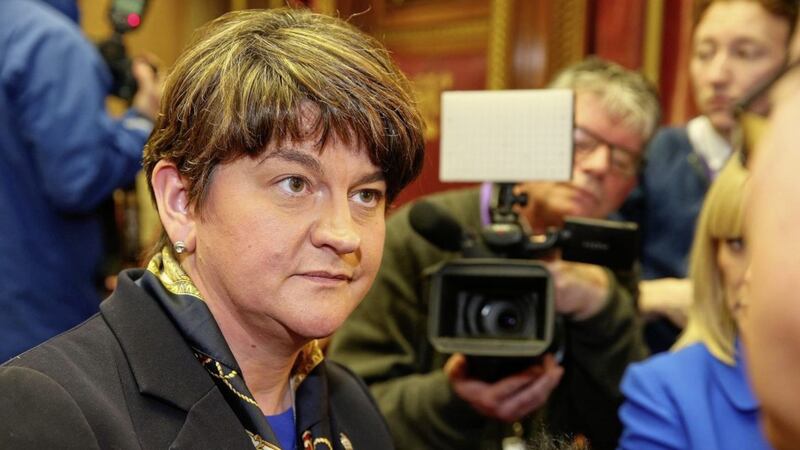When you think about it people in the north have been on this merry-go-round for six years now.
It began to revolve in 2012. Perhaps it was the census results that spooked unionism or the loss of control in Belfast or both. Whatever it was, since then there have been years of talks and talks: the Haass talks, the Stormont House Agreement, the Fresh Start Agreement and then the past year of five sessions of what were really Sinn Féin-DUP talks.
On each occasion the DUP either walked out, walked away or after reaching an agreement reneged on it. The DUP always denied they were the problem but this time they’ve been caught on and provoked universal exasperation.
Micheál Martin had a point in the Dáil when he laid the blame for the present impasse at the door of the two governments but then ruined it because he couldn’t resist the obligatory dig at Sinn Féin and the DUP as ‘dysfunctional’.
Nevertheless there’s validity in Martin’s criticism. True, he can’t have it both ways blaming London and Dublin but also taking a side swipe at the two main parties here. The fact is that since 1985 until 2010 it’s been an axiom that together London and Dublin supervise and jointly manage what happens here. Since then, Martin said, the Irish government has taken their foot off the accelerator. That’s putting it mildly.
Here are the facts. David Cameron, now shown up as one of Britain’s worst prime ministers, an arrogant, careless dilettante, a fitting precursor for the useless, spineless excuse for a premier we suffer under now, openly sided with the DUP. He destroyed any pretence the British government claimed to be even-handed about this place. Secondly, both he and May sent political nonentities here as proconsuls. May selects ciphers abject in their loyalty to her who had worked for her in the home office including the present incumbent, ciphers who wouldn’t say boo to a goose in case they annoy their benefactor.
May completed Cameron’s work by unforgivably tying the Conservative party - note not the British government - formally to the DUP thereby removing any ability of herself or any hologram she sends as proconsul to act as mediator, honest broker, arbitrator or guardian of the Good Friday Agreement.
For their part the Irish government simply disengaged from the north. Eamon Gilmore, a former Stickie who had, shall we say, issues with Sinn Féin, hardly took the place under his notice. Charlie Flanagan could only see northern nationalists through the magnifying glass of Sinn Féin in the Dáil. Sometimes you could hardly distinguish his contributions at talks in Stormont from the British line. Can you remember a single word he said about the north?
In those circumstances leaving it up to Sinn Féin and the DUP to make a settlement on their own, which is what has been going on for a year now, is completely irresponsible. The major fault lies with the British of course as the sovereign power because no proconsul can act as mediator being already compromised by the infamous Tory-DUP deal. Worse, any independent mediator daft enough to accept an invitation to try to reach a deal will find the DUP can pick and choose what they like since the British government will exert no pressure on them.
Varadkar’s government is now paying the price for Enda Kenny’s complete detachment from the north and years of letting the British and DUP do what they like. As far as Kenny and his government were concerned the more difficult things were for Sinn Féin the better. The more he could embarrass Gerry Adams with reference to failure in the north the more points he scored in the Dáil. All the while the Good Friday Agreement atrophied as Kenny’s government never asserted its right to be involved or consulted even in economic matters.
So perhaps the next time Micheál Martin gets up to blame the failure of the two governments since Kenny became taoiseach in 2011 he might consider what he would have done in Sinn Féin’s position faced with an overtly biased British government and a disengaged Irish government.









